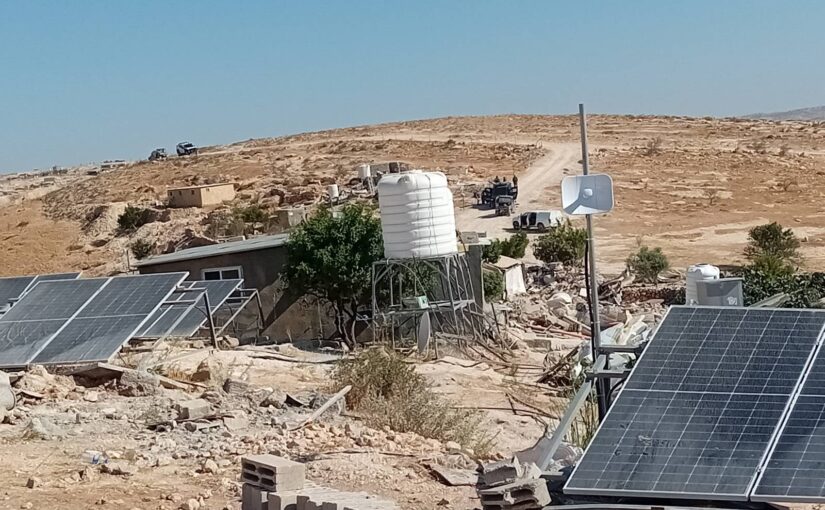Author: ISM Media
-
Call for action – Contact your TD/MP
On May 31, Israeli authorities arrested Swedish citizen Susanne Björk (48) and Irish citizen D. Murphy (70) – both based in the UK – from Khalet Al-Daba’a, in Masafer Yatta, located in the southern part of the occupied West Bank. Björk was deported on the morning of June 2, while Murphy is currently being detained while fighting…
-
For immediate release — Israel deporting international activists standing against immediate displacement of communities in Masafer Yatta
June 1, 2025, Palestine — On May 31, Israeli authorities arrested Swedish citizen Susanne Björk (48) and Irish citizen D. Murphy (70) – both based in the UK – from Khalet Al-Daba’a, in Masafer Yatta, located in the southern part of the occupied West Bank. Björk will be deported tomorrow morning while Murphy is fighting the…
-
Israel’s attacks on refugee camps in the West Bank
By Diana Khwaelid — Northern West Bank — 8th May 2025 The Israeli occupation forces continue their aggression on the city of Tulkarm and its camp for the 102nd consecutive day, and for the 89th day on the Nur Shams camp East of the city with a continuous escalation of raids, inspections, and demolition of…

